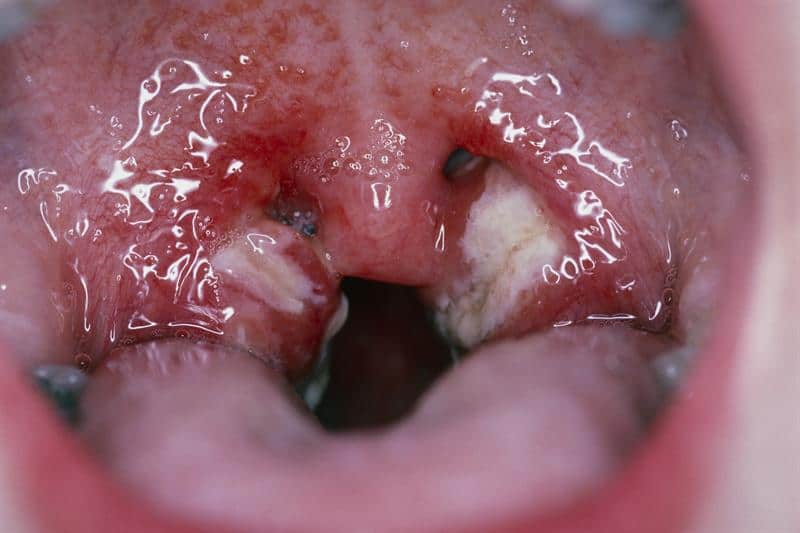Understanding Glandular Fever: A Comprehensive Guide for Parents
Hello, super moms and dads! ? Are you worried about glandular fever (also known as infectious mononucleosis or “mono”) and how it might affect your little ones? Fear not, because here’s the friendly guide you’ve been looking for! We’re going to dive into the nitty-gritty of how you get glandular fever, ways to spot it, and, most importantly, effective strategies to keep your family safe. So, grab a cup of tea, and let’s get started on this journey to understanding and preventing this common childhood ailment!
What is Glandular Fever?
First things first! Glandular fever is caused by the Epstein-Barr virus (EBV) ?, a member of the herpes virus family. It is a common illness among teenagers and young adults, but younger children and adults can catch it too. The key symptoms of glandular fever include extreme fatigue, high fever, sore throat, and swollen lymph nodes. It sounds pretty ordinary, but this particular illness can be a bit stubborn, lingering for several weeks or even longer.
How Do Kids Catch Glandular Fever?
Now, onto the big question: How do kids and teens catch glandular fever? Well, the Epstein-Barr virus is primarily transmitted through saliva ?, which is why glandular fever is sometimes called the “kissing disease.” But let’s be real – it’s not just smooches that spread it! Sharing drinks, food, or utensils, or coming into contact with a sneeze or cough from an infected person, can just as easily pass the virus onto your child. And don’t forget those adorable but germ-spreading toys that kids love to put in their mouths!
The Sneaky Incubation Period
EBV has a rather sneaky feature known as the incubation period, which is the time between exposure to the virus and when symptoms start showing up. This can range from four to six weeks, so it’s possible your child could be spreading the virus without even knowing they have it! ?
The Role of Asymptomatic Carriers
Additionally, some children and adults may carry the virus without showing any symptoms at all, further contributing to the stealthy spread of this ailment. These silent carriers can be unwitting culprits in transmitting the virus to others around them.
Recognizing the Symptoms of Glandular Fever
Identifying glandular fever can be a bit tricky, so it’s worth knowing what to look out for. The primary symptoms to keep an eye on include:
- ?? High fever
- ? Extreme fatigue
- ? Sore throat, which can sometimes be misdiagnosed as strep throat
- ? Swollen lymph nodes in the neck and possibly in the armpits and groin
- ? Headache
- ? Sleepiness
- ? Dizziness
- ? Loss of appetite
Some kids might also show signs of a swollen spleen or liver. It’s super important to be gentle and avoid any contact sports if that’s the case because we don’t want any belly boo-boos making matters worse!
Preventing the Spread of Glandular Fever
Right now, you’re probably thinking, “How can I protect my precious ones from glandular fever?” Well, prevention revolves around good hygiene and a little common sense. Encourage your kiddos to:
- ? Wash their hands regularly with soap and water.
- ? Not share drinks, eating utensils, or toothbrushes with friends.
- ? Keep their toys clean, especially if they share with others.
- ? Cover their mouths when coughing or sneezing, preferably with a tissue that can be thrown away immediately.
Remember that friendly reminder that sometimes kids with glandular fever don’t show symptoms? This is why these good habits are ultra-important to practice all the time, even when everyone seems healthy as horses!
Wowza! That’s a lot to take in, isn’t it? But knowledge is power, and now that you’re armed with this info, you can be your family’s very own glandular fever superhero! ???????? In the next section, we’ll delve deeper into how glandular fever is diagnosed and treated, so stay tuned for more empowering insights to keep the bug away!

5 Essential Things to Prepare for Glandular Fever
As a parent, your “always be prepared” motto is about to come in handy! Here are five essential things you should know when prepping for the eventuality of glandular fever:
1. Educate Your Family
Knowledge is not just power; it’s prevention too! Make sure that your whole family is aware of how glandular fever is transmitted. Practice role-playing games to teach younger children about not sharing personal items and understanding the importance of personal space to reduce the risk of saliva exchange.
2. Stock Up on the Essentials
Should glandular fever pay a visit, you’ll need a well-stocked pantry and medicine cabinet. Be sure to have plenty of fluids like water and electrolyte-replenishing drinks to keep everyone hydrated. As for your medicine cabinet, ensure you have pain relievers that are safe for children, like acetaminophen or ibuprofen, as well as lozenges for sore throats.
3. Plan for Comfort
Remember, comfort is key! Create a cozy sick bay area with extra pillows, blankets, and a thermometer to monitor fever. Since resting is a huge part of recovery, have a stack of books or arrange a comfortable movie-viewing setup for your child. Consider a humidifier to keep the air moist and help soothe sore throats.
4. Understand the Need for Rest
Affected children will need lots of rest. Be prepared for your little one to be out of school for several weeks. Talk to teachers about homework packets or classwork that can be done from home. Also, arrange a restful environment where your child can recover without disturbances.
5. Be Prepared to Seek Medical Advice
Becoming familiar with the symptoms of glandular fever is one thing; knowing when to seek medical help is another. If your child has a high fever, severe sore throat, swollen glands, or abdominal pain, it’s time to consult a doctor. Keep your pediatrician’s contact info handy, and discuss in advance any concerns or symptoms to watch out for with this illness.
By understanding these key pieces of information, you’ll be in prime position to handle glandular fever with superhero precision and calmness. So deep breaths, super-parents! You’ve got this! And with these prevention tips and tricks up your sleeve, you are sure to keep glandular fever at bay. ??
When Should You Call the Doctor?
A quick detour to a very important checkpoint – knowing when to call the doctor. While many cases of glandular fever can be dealt with at home, here are a few red flags that suggest it’s time to get professional help:
- Persistent high fever lasting more than a few days may require medical intervention.
- Severe abdominal pain, which could indicate a swollen spleen.
- Difficulty breathing or severe sore throat that hinders swallowing or breathing.
- Extreme fatigue or sleepiness that affects daily activities.
- Signs of dehydration, like dry mouth, crying without tears, and reduced urine output.
And there you have it! A guide filled with love and loaded with info! Keep these nuggets of wisdom close, and you’ll navigate the tricky waters of glandular fever like a true champ. Your family’s health and happiness is a beautiful journey, and you’re doing great! ? Keep up the awesome work, and remember: prevention, comfort, rest, and timely medical advice are your new best friends. ??
See more great Things to Do with Kids in New Zealand here. For more information see here
Disclaimer
The articles available via our website provide general information only and we strongly urge readers to exercise caution and conduct their own thorough research and fact-checking. The information presented should not be taken as absolute truth, and, to the maximum extent permitted by law, we will not be held liable for any inaccuracies or errors in the content. It is essential for individuals to independently verify and validate the information before making any decisions or taking any actions based on the articles.




